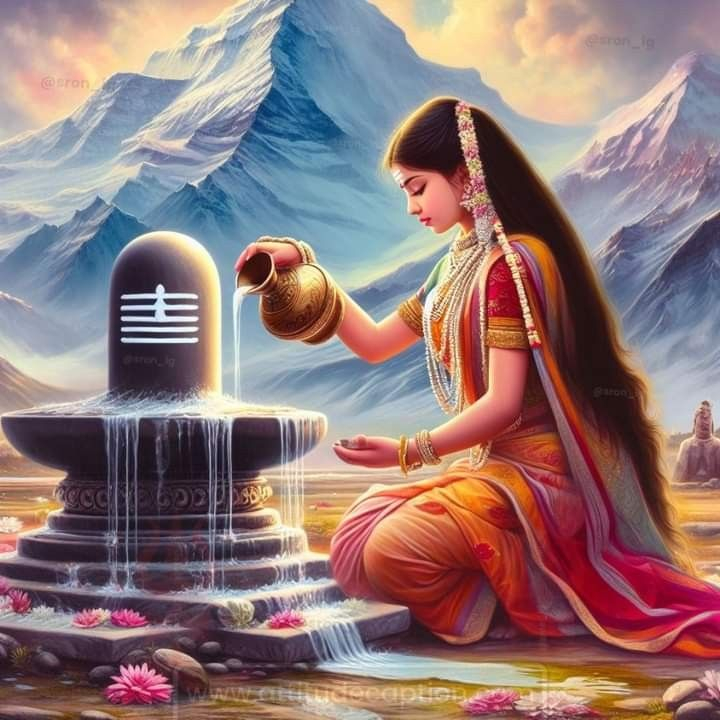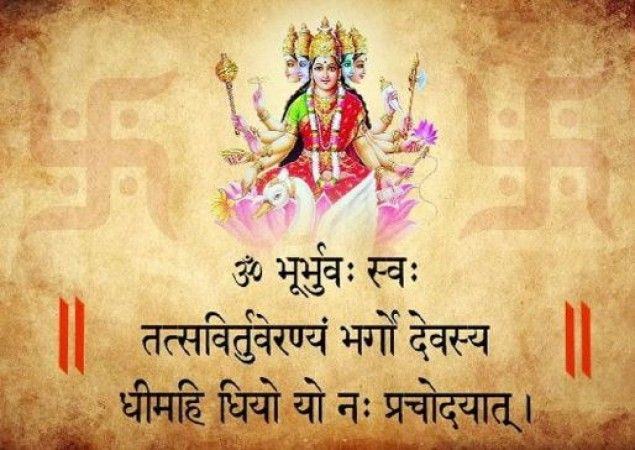7 divine reasons why husband is called patidev – must read!

Why Husband is Considered Patidev: Spiritual Wisdom from Sanatan Dharma
Why is the husband called Patidev in Hinduism? Discover 7 divine reasons and sacred stories that celebrate marriage, love, and dharma in Sanatan culture.
In Indian tradition, particularly in the framework of Sanatan Dharma, the term "Patidev" holds profound spiritual significance. But have you ever wondered why husband is considered Patidev? The answer lies deep within the roots of ancient scriptures, sacred duties, and divine roles bestowed upon a married couple. In this article, we’ll explore why husband is considered Patidev, the meaning behind this reverence, and how it shapes the sacred bond of marriage in Hinduism. Understanding why husband is considered Patidev not only highlights cultural beliefs but also reflects the divine nature of relationships as described in Vedic literature.
Let’s delve into this sacred subject and uncover the timeless wisdom of Sanatan Dharma.
Understanding the Meaning of ‘Patidev’
Etymology and Spiritual Essence
The word "Patidev" is a combination of two Sanskrit terms — Pati meaning husband, and Dev meaning god. Together, Patidev implies “husband as god”. This does not advocate blind submission but rather reflects the spiritual meaning of husband in Hindu dharma, where the husband is revered as a divine partner helping his wife achieve Dharma, Artha, Kama, and Moksha — the four goals of life.
Sanatan Dharma teaches that in the sacred institution of marriage, the husband and wife are co-travelers on a spiritual journey. The reverence shown to a husband as Patidev is rooted in the belief that one sees divinity in the one they are bound to in dharma. Thus, the significance of Patidev in Hinduism lies not in hierarchy, but in the divine acknowledgment of roles.
Husband’s Role in Hindu Philosophy
According to the ancient texts, the husband is considered the Grihastha Dharma Dhwaj — the flag-bearer of the householder’s duties. He is tasked with protecting the family, guiding the household in dharma, and performing rituals that sustain spiritual energy. In this role, the spiritual meaning of husband in Hindu dharma is elevated — not because he commands, but because he shoulders sacred responsibilities with sincerity.
As a provider, teacher, and spiritual companion, the husband is expected to walk the path of truth and guide the family accordingly.
Role of Husband in Sanatan Dharma
Husband as a Spiritual Companion
Marriage in Hinduism is not a mere social contract; it is a sacred union known as vivaha samskara. The scriptures define the husband and wife as “ardhangini” — two halves of one whole. The role of husband in Sanatan Dharma is that of a Dharma-mitra, a spiritual ally on the path to liberation.
The husband leads the family in daily rituals like Sandhya Vandanam, Yajnas, and Vratas, fulfilling his duty toward gods and ancestors. In this capacity, the divine status of husband in Indian culture emerges, not from ego, but from responsibility.
Mutual Duties in Grihastha Ashram
In the Grihastha Ashram, both husband and wife have defined responsibilities. The role of husband in Sanatan Dharma includes ensuring that dharma is upheld, children are educated in spiritual values, and charity is regularly practiced.
The Manusmriti beautifully states:
"Yatra naryastu pujyante ramante tatra devatah" यत्र नार्यस्तु पूज्यन्ते रमन्ते तत्र देवता I
(Where women are honored, the gods dwell.)
This mutual respect forms the foundation of their relationship. Just as a wife is seen as Shakti (divine energy), the husband is seen as Vishnu, maintaining cosmic order in the household.
Pativrata Dharma and the Devotion of a Wife
What is Pativrata Dharma?
Pativrata Dharma refers to the spiritual vow a wife takes to support her husband in all dimensions of life — mental, physical, emotional, and spiritual. Her love is not based on compulsion but is seen as an act of Tapasya (austerity). The value of pativrata dharma is mentioned in various scriptures, highlighting how a wife’s steadfastness can even alter fate.
Her dharma includes patience, compassion, sacrifice, and wisdom. It is believed that through pativrata dharma, she helps her husband in attaining moksha, and in doing so, uplifts herself too.
Sati, Anasuya, and Savitri – Exemplars of Pativrata
Indian mythology is filled with stories of women who embodied pativrata dharma with unmatched strength.
-
Sati, who immolated herself out of dignity and love, symbolized the fierce loyalty of a devoted wife.
-
Anasuya, whose tapasya transformed the Trinity of Gods into infants, showed the power of purity.
-
Savitri, who followed Yama to reclaim her husband’s life, is the epitome of courage, faith, and devotion.
These women did not blindly follow their husbands; they spiritually empowered them. Hence, the reverence of why husband is considered Patidev is rooted in such shared dharma.
Devotion of Wife in Hinduism
In epics like the Ramayana, Sita’s unwavering support for Rama during his exile is a divine example of the devotion of wife in Hinduism. Her silence, strength, and surrender were not weaknesses but choices rooted in higher spiritual purpose.
In the Mahabharata, Draupadi endured insults and injustice but remained the spiritual compass for the Pandavas. Her wisdom guided Yudhishthira during the worst times.
Such stories affirm that devotion of wife in Hinduism is not about submission but about the sacred power of love, will, and grace.
Stories of Ideal Couples in Mythology
Mythology is rich with divine love stories that illustrate how husband and wife together fulfill their destinies.
-
Shiva and Parvati: A union of destruction and fertility, they balance cosmic energies. Parvati's penance to win Shiva shows her role in his spiritual evolution.
-
Rama and Sita: Their story is one of truth, sacrifice, and enduring dharma. Despite hardships, their respect for each other remained unshaken.
-
Radha and Krishna: Symbolizing unconditional love, their bond transcends the physical and enters the spiritual realm.
These stories of ideal couples in mythology give life to the concept of why husband is considered Patidev, highlighting that devotion and dharma go hand in hand.
✨ Coming Up in Part 2:
In the next section, we will explore:
-
Why the husband is addressed as ‘Dev’
-
Rituals and traditions like Karva Chauth and Vat Savitri
-
Misinterpretations in modern society
-
And how to rediscover the sacred bond in today’s relationships
Why Husband is Considered Patidev: Spiritual Wisdom from Sanatan Dharma
In Part 1, we explored the spiritual meaning of the word Patidev, the husband’s role in Sanatan Dharma, the vow of Pativrata Dharma, and inspiring stories of ideal couples in Hindu mythology. But the journey doesn’t end there. To truly understand why husband is considered Patidev, we must also look into the rituals, symbolic language, and philosophical interpretations that further elevate the husband’s spiritual position in a dharmic marriage.
Let us now explore these sacred dimensions and decode the complete wisdom of this time-honored tradition.
Why the Husband is Addressed as ‘Dev’ (God)
Divine Representation in Earthly Form
In Sanatan Dharma, the essence of seeing God in every being is central. The term ‘Patidev’ reflects this truth — that the husband, when committed to dharma, becomes a divine channel through whom spiritual energy flows into the household. This is not a symbol of dominance, but an acknowledgment of divine responsibility.
Just as the wife is called Griha Lakshmi (the goddess of fortune in the home), the husband is seen as the protector and spiritual anchor — akin to Vishnu. The divine status of husband in Indian culture is attributed to his selfless role in maintaining spiritual harmony and guiding the family in the righteous path.
Thus, why husband is considered Patidev is directly linked to his ability to embody divine virtues — patience, protection, sacrifice, and guidance.
Rituals and Practices That Reflect This Reverence
Several Hindu rituals clearly demonstrate the cultural practice of honoring the husband:
-
Karva Chauth: A North Indian festival where wives fast and pray for their husband’s long life and prosperity, considering him the center of their sacred vows.
-
Vat Savitri Vrat: A fast observed by women for their husbands’ well-being, inspired by the legendary story of Savitri and Satyavan.
-
Teej: Celebrated primarily in parts of Rajasthan, UP, and Bihar, where women adorn themselves, sing traditional songs, and pray for the health and longevity of their husbands.
These rituals symbolize not just physical well-being but the spiritual connection between the wife and her Patidev — rooted in devotion, mutual respect, and dharma.
Cultural Importance of Marriage in Hinduism
Marriage is not merely a social arrangement in Hindu culture — it is a samskara (sacred rite), one of the sixteen prescribed in a Hindu's life. The vivaha ritual includes fire as a witness, Vedic mantras, and vows taken for seven lifetimes. These vows are not just about staying together, but about spiritual partnership and growth.
The cultural importance of marriage is immense — it is through this union that families, values, and dharma are upheld across generations. In such a sacred setup, the role of the husband and wife is divinely interconnected.
Thus, the phrase “why husband is considered Patidev” reflects not just blind faith, but a sacred acknowledgement of this lifelong bond.
Duties of a Wife in Hindu Scriptures
The duties of a wife in Hindu scriptures are centered around mutual upliftment, emotional support, and spiritual dedication. The Manusmriti, Yajnavalkya Smriti, and other Dharmashastras emphasize that a wife must:
-
Respect her husband’s path of dharma
-
Offer him emotional and moral strength
-
Support religious observances and family welfare
-
Share in his yajnas and fasts
But it is important to note that these duties are not one-sided. Scriptures also prescribe how a husband must protect, love, respect, and never forsake his wife — thereby making marriage a balanced spiritual enterprise.
Misinterpretations and Modern Perspectives
Is ‘Patidev’ a Symbol of Male Dominance?
In modern times, some interpret the reverence of a husband as regressive. However, this is a misunderstanding of the symbolic depth. The concept of why husband is considered Patidev is not about patriarchy, but about seeing divinity in a life partner.
Just as a devotee sees Krishna in their beloved, or God in every soul, the term Patidev stems from a deeply spiritual lens. When the husband lives a dharmic life — upholding truth, performing duties, and showing compassion — the wife sees Vishnu in him.
This spiritual respect is not submission, but strength. In fact, it is through this respectful love that both partners empower each other.
Evolving Roles in Contemporary Times
Modern relationships can still align with Sanatan values. Being modern doesn’t mean we discard traditions — it means we interpret them wisely. A husband can still be considered Patidev if he walks the path of dharma and upholds his commitments.
Today, both husband and wife are educated, self-reliant, and spiritual. The respect they offer each other — whether by calling one Patidev or Devi — is a mutual expression of love and spiritual companionship.
Thus, the role of husband in Sanatan Dharma is ever-evolving, but always rooted in responsibility, selflessness, and devotion.
🔄 Rediscovering the Sacred Bond
In this fast-paced world, where relationships often lack depth and longevity, returning to Sanatan Dharma’s view of marriage can offer profound guidance. The wisdom of seeing your life partner as a spiritual ally and why husband is considered Patidev reminds us that:
-
Love is not just emotion, it is devotion.
-
Partnership is not just physical, it is spiritual.
-
Respect is not just formality, it is reverence.
💡 Conclusion: Embrace the Sanatan Perspective
Marriage is not a competition of dominance, but a divine collaboration. When a husband upholds dharma and walks the path of righteousness, he becomes Patidev — worthy of honor, love, and devotion. Similarly, the wife as Griha Lakshmi uplifts the family and holds the moral foundation.
Together, they form the essence of Sanatan Dharma — rooted in love, service, sacrifice, and spiritual awakening.
🙏 Call to Action
Let us revive the sacred bond of marriage with consciousness and compassion. Let us see our partners not just as individuals, but as spiritual companions on the path of dharma. If you believe this ancient wisdom can guide today’s world, share this article, reflect on its values, and honor the sacredness of your own relationships.
✨ May every household resonate with the divine harmony of Patidev and Griha Lakshmi. ✨
-
🙋♂️ Frequently Asked Questions (FAQs)
1. Why is the husband called ‘Patidev’ in Hinduism?
In Hinduism, the husband is considered ‘Patidev’ because he is seen as a spiritual guardian, protector, and guide within a sacred dharmic marriage.
2. Does calling the husband ‘Patidev’ mean the wife is inferior?
No, it reflects mutual respect. Just as the husband is seen as ‘Patidev,’ the wife is honored as ‘Griha Lakshmi’ and equally revered in Sanatan Dharma.
3. Is the concept of Patidev still relevant in modern times?
Yes, the core idea of spiritual respect and dharmic responsibility between partners remains timeless and can enhance modern relationships.
4. What does Sanatan Dharma say about the husband’s responsibilities?
He must protect, provide, guide spiritually, and uphold dharma, treating his wife with love, respect, and equality.
5. Which festivals celebrate the bond between husband and wife?
Festivals like Karva Chauth, Vat Savitri Vrat, and Teej highlight devotion, prayer, and the sacred bond between husband and wife.
6. Can a wife be called ‘Devi’ in return?
Absolutely. Sanatan Dharma reveres the wife as a goddess — ‘Griha Lakshmi,’ the bringer of prosperity, virtue, and peace in the home.
7. Does the concept of Patidev promote patriarchy?
No, it promotes divine mutuality. Patidev is not about control; it’s about revering the spiritual role within marriage.
8. Are there examples of divine couples in Hindu texts?
Yes, Shiva-Parvati, Vishnu-Lakshmi, and Rama-Sita are revered for their mutual devotion, duty, and spiritual partnership.
9. Is marriage a spiritual union in Sanatan Dharma?
Yes, it is a sacred samskara that binds two souls for spiritual growth, not just a social or physical bond.
10. How can couples today apply this ancient wisdom?
By practicing respect, responsibility, and love as sacred duties, and viewing each other as divine partners on the path of dharma.
🕉️ A Message to Our Readers
Dear readers,
We hope this exploration into the meaning and significance of why husband is considered Patidev has deepened your understanding of Sanatan Dharma’s timeless values. In today’s changing world, embracing such sacred perspectives can restore peace, devotion, and harmony in our homes.
🌸 Let us bring back the divinity in our relationships — one sacred thought at a time. 🌸
If this article inspired you, share it with your family and loved ones, and keep visiting Sanatanyug.com for more spiritual insights that connect you with your roots.







